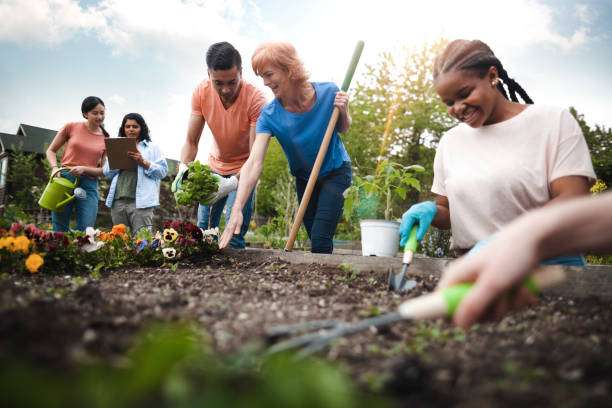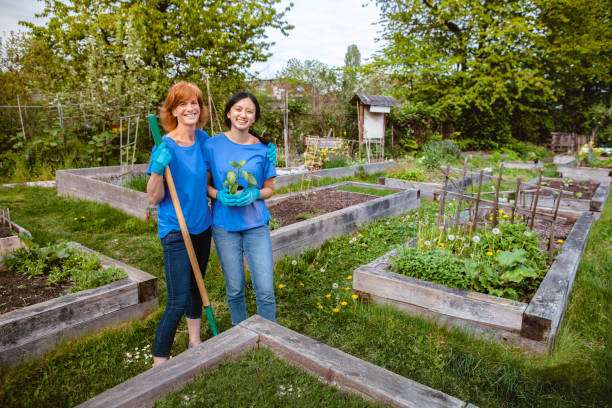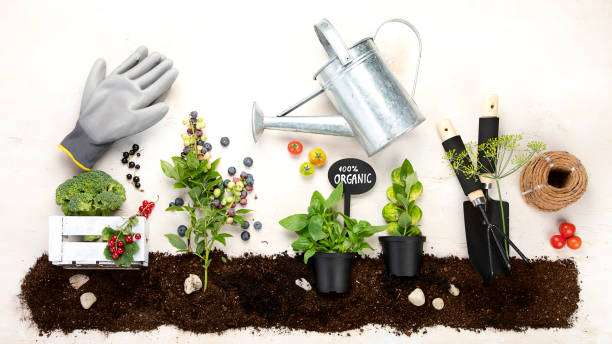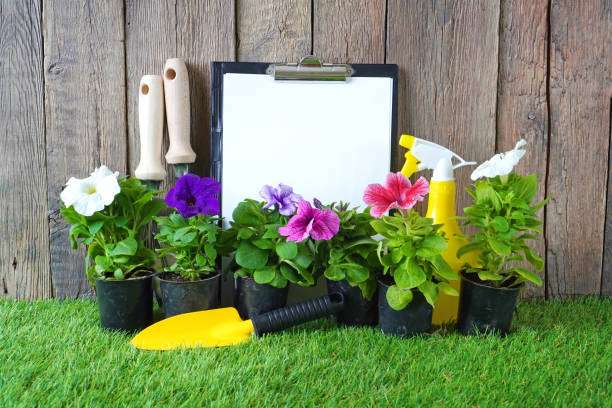Introduction
Gardening can be a satisfying and compensating side interest for individuals of any age and foundation. Whether you have a rambling patio or a little gallery, developing plants can bring pleasure, magnificence, and a feeling of achievement to your life. Assuming that you’re new to gardening, it can appear to be overpowering from the outset. Be that as it may, dread not, for with the right direction and a touch of tolerance, you can make an energetic and prospering nursery. This article is about the Top Gardening Tips for Beginners.

Start Little
Quite possibly, one of the most well-known mistakes beginners make is jumping carelessly into a broad nursery with a wide assortment of plants. While it’s perfect to have huge desires, beginning small is fitting. Start with a couple of simple-to-develop plants or even only one. By zeroing in on a more modest region, you’ll be better prepared to oversee and focus on your plants, acquiring significant experience and certainty en route. It is the Top Gardening Tips for Beginners.
Choose the right area.
The progress of your nursery depends to a great extent on its area. Most plants need a lot of daylight to flourish, so pick a spot in your nursery with no less than 6–8 hours of direct sunlight each day. On the off chance that you’re gardening inside or have a concealed outside region, consider developing shade-lenient plants like greenery or hostas. It is the Top Gardening Tips for Beginners. Understanding your nursery’s circumstances is fundamental to choosing the right plants and guaranteeing their development.
Quality soil matters.
Sound, rich soil is the groundwork of a practical nursery. Before planting, find an opportunity to survey your dirt’s quality. You can play out a basic pH test or have it expertly assessed. Contingent upon the outcomes, you might have to alter your soil with manure, natural matter, or explicit composts to establish an optimal developing climate for your plants. It is the Top Gardening Tips for Beginners.
Watering Astutely
Overwatering and underwatering are everyday entanglements for new landscapers. It’s essential to comprehend the watering needs of your plants. Some like to remain reliably soggy, while others like to dry out between waterings. Put resources into a decent-quality watering can and screen the dampness levels in your dirt consistently. It is the Top Gardening Tips for Beginners. Remember that it’s not unexpected to water profoundly and less often than to water softly constantly, as this empowers profound root development.
Learn About Your Plants
Various plants have various necessities, so it’s critical to teach yourself about the particular prerequisites of the plants you’re developing. Some might require extraordinary consideration, for example, marking, pruning, or trellising, while others are low-maintenance. Knowing your plants’ qualities, development propensities, and potential issues will assist you in giving them the most ideal consideration.
Embrace Mulching
Mulch is your nursery’s dearest companion. It holds dampness, smothers weeds, directs soil temperature, and develops by large soil quality. Natural mulch, for example, straw, wood chips, or manure, can be a phenomenal addition to your nursery. Apply a layer of mulch around your plants, yet be sure not to cover the stems or trunks, as this can prompt decay.
Pests and illnesses
Look out for vermin and illnesses that can hurt your plants. Normal nursery bugs incorporate aphids, slugs, and caterpillars, while sicknesses like buildup and curse can influence your plants’ well-being. Consistently investigate your plants for complex situations and make a move immediately on the off chance that you notice any issues. You can utilize natural vermin control strategies or seek counsel from your neighborhood nursery or gardening focus. It is the Top Gardening Tips for Beginners.

Pruning and deadheading
Pruning and deadheading are fundamental gardening assignments that can assist your plants with flourishing. Pruning includes scaling back congested or dead branches, which can work on the general well-being and presence of the plant. Deadheading, then again, includes eliminating spent blossoms, which urges the plant to create more sprouts. The two practices assist your nursery with putting its best self forward and can prompt more robust development.
Patience is critical.
Planting is undoubtedly not a momentary leisure activity. It requires investment for plants to develop and prosper. Be patient and partake in the time spent sustaining your nursery. Avoid getting deterred by misfortunes or slow development, as they are essential for growth opportunities. Planting can be a reflective and helpful action that rewards tolerance and devotion.
Keep a nursery diary.
Keeping a nursery diary is an essential practice for novices and experienced landscapers alike. In your journal, record significant data about your plants, like their names, establishing dates, explicit consideration guidelines, and perceptions. This will assist you with keeping tabs on your development, gaining from your victories and disappointments, and arriving at informed conclusions about future plantings.
Conclusions about Top Gardening Tips for Beginners.
Gardening is a delightful and enhancing side interest that offers plenty of advantages, from working on mental prosperity to giving new, local produce. As a novice, these ten top gardening tips for beginners can show you how to progress and guarantee a more charming and productive planting experience. Start small, pick the right area, and put resources into quality soil. Please learn about your plants, water them carefully, embrace mulching, and remain cautious against vermin and illnesses. Remember to prune, be patient, and keep a nursery diary to keep tabs on your development. With time and devotion, you’ll foster your green thumb and partake in the various prizes of sustaining your nursery. Blissful Gardening!

Faqs about top Gardening Tips for Beginners
How can I say whether my dirt needs improvement before I begin gardening?
Before you start gardening, it’s wise to play out a dirt test. You can buy a dirt test unit or send a dirt example to a neighborhood farming expansion office for examination. This test will give you data about your dirt’s pH, supplement levels, and surface, permitting you to make vital changes to its quality.
What are some simple-to-develop plants for amateurs?
Some simple-to-develop plants for amateurs incorporate spices like basil, mint, and parsley, as well as blossoms like marigolds and zinnias. Vegetables like tomatoes, lettuce, and radishes are additionally novice-acceptable decisions. These plants are often pardoning and versatile, making them an extraordinary starting point for new nursery workers.
How frequently would it be advisable to water my plants, and how would I decide the perfect proportion of water?
The recurrence and measure of watering depend on the plant and ecological circumstances. As a rule, it’s wiser to water profoundly and less regularly than to wet softly and consistently. To determine the perfect proportion of water, stick your finger into the dirt about an inch down. Assuming it feels dry at that profundity, now is the ideal time to water. Change your watering plan, given your perceptions of how rapidly the dirt dries out.
What is a good idea for me to do on the off chance that my plants are pervaded with bugs or impacted by sickness?
On the off chance that you notice bugs or illnesses in your nursery, it’s crucial to make a move expeditiously. Consider utilizing natural vermin control techniques, for example, neem oil or insecticidal cleanser, to bug the board. For illnesses, you should eliminate and discard tainted plant parts and apply proper fungicides. Talk with a neighborhood nursery or planting community for explicit guidance on managing the issues you experience.
Is it essential to have a nursery diary, and what would it be a good idea for me to keep in it?
While not strictly fundamental, keeping a nursery diary can be an essential device for following your gardening venture. In your journal, record the names of your plants, establishing dates, explicit consideration guidelines, and any perceptions about their development and well-being. This documentation will assist you with gaining from your encounters, coming to informed conclusions about future plantings, and keeping tabs on your development as a nursery worker.

